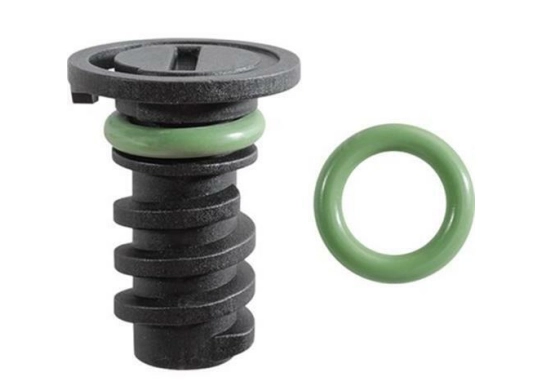lip oil seal types
Understanding Lip Oil Seal Types A Comprehensive Guide
Oil seals are essential components in mechanical systems, designed to prevent the leakage of fluids and to keep contaminants out. Among the various types of oil seals, lip oil seals are widely used across different industries, from automotive to manufacturing. This article explores the types of lip oil seals, their construction, applications, and key considerations when selecting the right seal for specific needs.
What are Lip Oil Seals?
Lip oil seals, also known as radial shaft seals, consist of a metal casing, a rubber elastomer lip, and sometimes additional elements like a spring. The primary function of the lip is to create a seal against a rotating shaft, preventing oil or lubricants from leaking out while keeping dirt and moisture from entering. The design allows for some shaft runout, accommodating wear and misalignment, which is common in rotating equipment.
Types of Lip Oil Seals
1. Single-Lip Oil Seals These are the most basic type of lip seals, featuring one sealing lip on the inside of the metal casing. They are commonly used in situations where the seal is only required on one side and offer simplicity and cost-effectiveness. Single-lip seals are often employed in automotive applications, like axle seals, where oil must be contained without additional complexity.
2. Double-Lip Oil Seals Double-lip seals have two sealing lips and are designed to provide better protection against leaks and contamination. The additional lip can be utilized to create a barrier against dust and dirt while maintaining a seal against oil. This makes double-lip seals ideal for more demanding applications, such as in heavy machinery and industrial equipment, where exposure to external contaminants is a concern.
3. V-Ring Seals Another variant, the V-ring seal, is typically used alongside traditional lip seals. It functions as a secondary sealing element and helps to protect the primary seal from contaminants. V-rings are unique in their design, as they are installed on the rotating shaft but do not contact the housing, relying instead on the flexibility of the material to create a seal.
4. UCT Seals (Universal Composite Technology) These seals feature a combination of elastomers and are designed to operate in extreme temperatures and pressures. They are particularly effective in environments where traditional seals may fail due to thermal stress or chemical exposure. UCT seals are becoming increasingly popular in automotive and industrial applications due to their superior performance and longevity.
lip oil seal types

5. Specialty Seals There are also specialized lip seals designed for specific applications, such as non-contacting seals for high-speed applications, or seals designed for chemical resistance in hydraulic systems. Manufacturers often develop custom lip seals to meet unique environmental demands or operational conditions.
Applications of Lip Oil Seals
Lip oil seals are ubiquitous in various sectors, including
- Automotive Used in engines, transmissions, and differentials to contain lubricants and prevent oil leaks. - Industrial Machinery Protecting bearings and rotating shafts in pumps, gearboxes, and compressors. - Aerospace Sealing critical systems where oil and fluid leakage could lead to catastrophic failures. - Hydraulics Ensuring the integrity of hydraulic systems in construction and agricultural equipment.
Choosing the Right Lip Oil Seal
When selecting a lip oil seal, several factors must be considered
- Operating Conditions Temperature, pressure, and the type of fluid being sealed all influence seal selection. - Shaft and Bore Specifications Accurate measurements ensure a proper fit and optimal sealing performance. - Environmental Factors Consider the presence of contaminants and corrosive substances that may affect seal life. - Material Compatibility The elastomer used in the seal must be compatible with the fluid it will be sealing.
In conclusion, lip oil seals play a critical role in ensuring the reliability and efficiency of mechanical systems. By understanding the different types and their applications, one can make informed decisions when selecting the appropriate seal for any specific application. Properly chosen and installed lip oil seals contribute significantly to the longevity and performance of machinery, reducing the risk of costly failures and maintenance downtime.
-
Simplifying Oil Changes: A Comprehensive Guide to Oil Drain Plugs and Their Variants
News Aug.04,2025
-
Mastering Oil Drain Maintenance: Solutions for Stripped, Worn, and Upgraded Oil Plugs
News Aug.04,2025
-
Fixing Oil Pan Plug Issues: Leaks, Stripped Nuts, and the Right Replacement Solutions
News Aug.04,2025
-
Everything You Need to Know About Oil Drain Plugs: Sizes, Fixes, and Upgrades
News Aug.04,2025
-
Choosing the Right Oil Drain Plug: A Guide to Sizes, Materials, and Drain Innovations
News Aug.04,2025
-
A Complete Guide to Automotive Drain Plugs: Types, Problems, and Innovative Solutions
News Aug.04,2025
-
The Ultimate Guide to Car Repair Kits: Tools and Essentials Every Driver Should Own
News Aug.01,2025
Products categories















